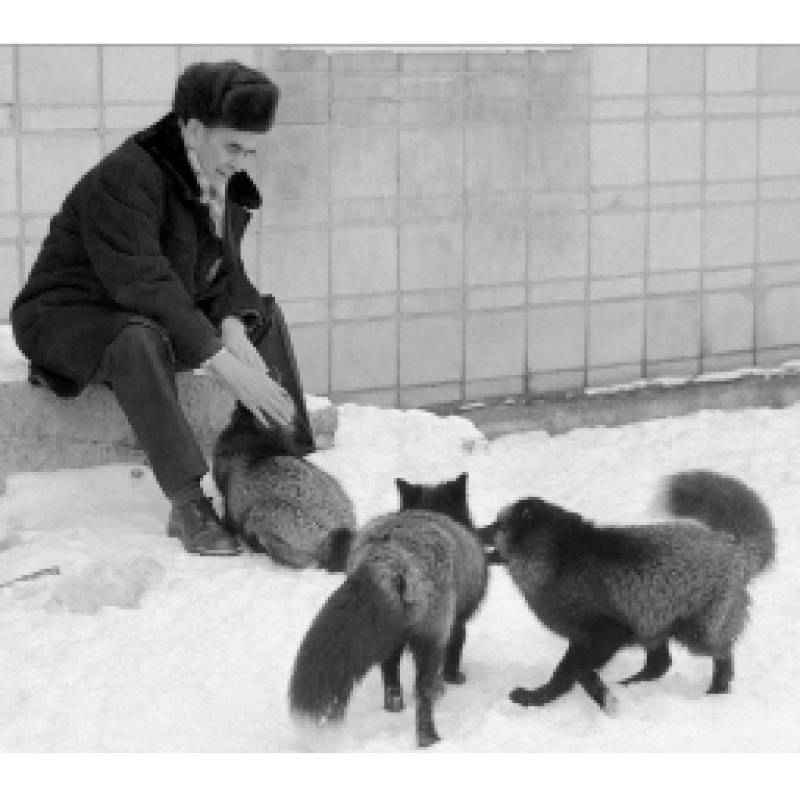These domesticated foxes were 60 years in the making



Does the future have pet foxes?
Scientists are uncovering new clues to the origins of domestication in an unlikely creature: foxes. After nearly 60 years of selective breeding in Siberia, there are a few rare foxes that are pretty unafraid of people. So, of course, we wanted to meet them.
The story goes back to 1959, when geneticist Dmitri Belyaev set out to try domestication from the very beginning. He had this idea that was radical for its time: domesticated animals like dogs are friendly because of genes that govern their behavior . Meaning, the process that turned wolves into dogs thousands and thousands of years ago was essentially evolution.
So Belyaev began selectively breeding foxes: the ones that weren’t as aggressive or afraid of people were allowed to have offspring. After Belyaev’s death in 1985 , geneticist Lyudmila Trut — co-author of How to tame a fox (and build a dog) — took over. Over time, the foxes became more dog-like: they’re not skittish around people, though they might not climb into your lap for a cuddle, either.
The project has given scientists like Anna Kukekova , a professor of animal sciences at the University of Illinois Urbana-Champaign, a window to watch domestication in action. By analyzing the genes of these foxes, they’ve homed in on a potential genetic link to friendliness, according to a paper published just a few weeks ago in the journal Nature Ecology and Evolution .
But reading about the foxes isn’t enough. So to actually meet them, Verge Science ’s video team didn’t have to go as far as Siberia. Some of these creatures have been trickling out into the world as pets — and a few ended up in the hills outside San Diego, at the Judith A Bassett Canid Education and Conservation Center . It’s a kind of interactive zoo designed to introduce people like us to the foxes. And it’s where Verge video producer Will Poor found himself sitting on the ground, hoping that a fox would come over and give him a sniff. Check out the video above to see what happened.


What does "domesticated" mean?
Are cats "domesticated"?
as far as I can tell the only difference between a feral cat and a domesticated cat is the level of trust they have for us humans.
ive seen feral cats act domesticated around humans they know
and ive seen domesticated cats act feral around humans they dont know.
I think it all boils down to trust.
So... who is domesticated? The cat, or the person who is (or is not) trusted?